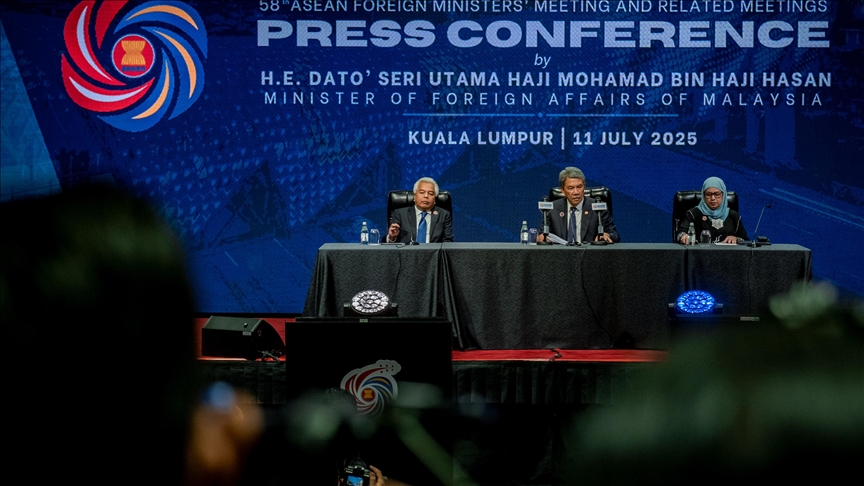East Asia nations adopt Kuala Lumpur action plan on Palestinian state-building efforts
4th ministerial meeting of Conference on Cooperation among East Asian Countries for Palestinian Development (CEAPAD) held in Malaysian capital
 58th ASEAN Foreign Ministers' Meeting and Related Meeting in Malaysia
58th ASEAN Foreign Ministers' Meeting and Related Meeting in Malaysia
ANKARA
East Asian nations adopted an action plan Friday that expressed their intention to strengthen coordination and promote cooperation in humanitarian aid, recovery and reconstruction assistance for Palestine, said a statement from the Japanese Foreign Ministry.
The Kuala Lumpur action plan was adopted at the fourth ministerial meeting of the Conference on Cooperation among East Asian Countries for Palestinian Development (CEAPAD) held in the Malaysian capital.
CEAPAD is a regional conference framework launched by Japan in 2013 to support Palestinian state-building efforts by drawing on the resources, knowledge and experiences of economic development of the East Asian countries.
Hosted by Malaysia, the meeting was co-chaired by Japanese Foreign Minister Iwaya Takeshi, his Malaysian counterpart, Utama Haji Mohamad bin Haji Hasan, minister of foreign affairs of Malaysia and Estephan Salameh, minister of planning and international cooperation of Palestine.
Expressing concerns about the deteriorating situation in the West Bank and the Gaza Strip, particularly the humanitarian crisis in the besieged enclave, the meeting called for the "full" resumption of humanitarian aid as well as the independent and impartial operations of the UN and humanitarian agencies.
It also called for an immediate ceasefire in Gaza, reiterating support for a two-state solution of the Palestine issue.
Japan's top diplomat emphasized the significance of enhancing collaboration through CEAPAD to expand the assistance base and diversify the assistance means for Palestine, "in light of the unprecedented difficulties Palestinians have been facing, including the situation in Gaza.”
He also called for urgent humanitarian needs, as well as enormous early-recovery and reconstruction required in Gaza.
Reiterating Tokyo's support for a two-state solution, Iwaya emphasized Japan's commitment to continue to play an active role in humanitarian aid, early recovery and reconstruction assistance and supporting Palestinian Authority (PA) reforms.
Palestinian Prime Minister Mohammad Mustafa, who participated through a video massage, provided an overview of the challenges Palestine is facing in Gaza and the West Bank, emphasizing the importance of a two-state solution.
Representatives from 13 countries and regions, and two international organizations, including
Japan, Malaysia, Palestine, Brunei, Cambodia, Indonesia, the Republic of Korea, Laos, the Philippines, Singapore, Thailand, Vietnam, Timor-Leste, the UN Relief and Works Agency for Palestine Refugees in the Near East (UNRWA) and the Islamic Development Bank (IDB) attended the meeting.
*Writing by Aamir Latif








